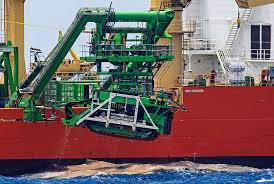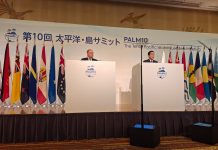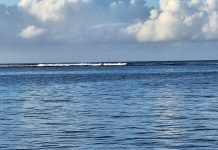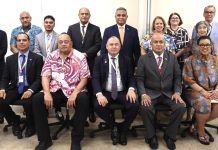Deep sea mining could begin in the Pacific as early as this month after a shock decision from regulators to allow The Metals Company to start mining the seafloor.
The International Seabed Authority (ISA) has granted permission to Nauru Oceans Resources Incorporated (NORI) to begin exploratory mining in the Clarion Clipperton Zone between Hawai’i and Mexico. NORI is a subsidiary of The Metals Company. The initial mining test phase is scheduled to conclude by the end of year, paving the way for “NORI’s application to the ISA for an exploitation contract” as expressed by The Metals Company itself.
Greenpeace Aotearoa says the move signals the beginning of a new and destructive extractive industry that will place profit before people and biodiversity, threatening ocean health and people’s way of life.
Greenpeace Aotearoa seabed mining campaigner James Hita says: “Deep sea mining is now right upon our doorstep and is a threat to each and every one of us. The ocean is home to over 90% of life on earth and is one of our greatest allies in the fight against climate change. Greenpeace will not stand by quietly as deep sea mining companies begin to plunder the seafloor and decimate biodiversity for profit.
“This latest decision from the ISA will have come as a shock to civil society who were shut out of the decision making process, highlighting a lack of transparency from the Authority.
“The ISA was set up by the United Nations with the purpose of regulating the international seabed, with a mandate to protect it. Instead they are now enabling mining of the critically important international seafloor. The Legal and Technical Commission, that approved this mining pilot, meets entirely behind closed doors, allowing no room for civil society to hold them to account. This mechanism is simply unacceptable.”
Greenpeace is urging world leaders to step in and, at the very least, put in place a moratorium on deep sea mining to protect the ocean.
“For decades, Pacific peoples have been pushed aside and excluded from decision making processes in their own territories. Deep sea mining is yet another example of colonial forces exploiting Pacific land and seas, without regard to people’s way of life, food sources and spiritual connection to the ocean.
“Right now people across the Pacific are taking a stand, calling for a halt to deep sea mining. Civil society, environmentalists and a growing alliance of Pacific nations are urging government leaders to stand on the right side of history and stop deep sea mining in its tracks. We must stand in solidarity with our Pacific neighbours and put a lid on this destructive industry to preserve ocean health for future generations,” says Hita.
SOURCE: GREENPEACE NZ/PACNEWS


















